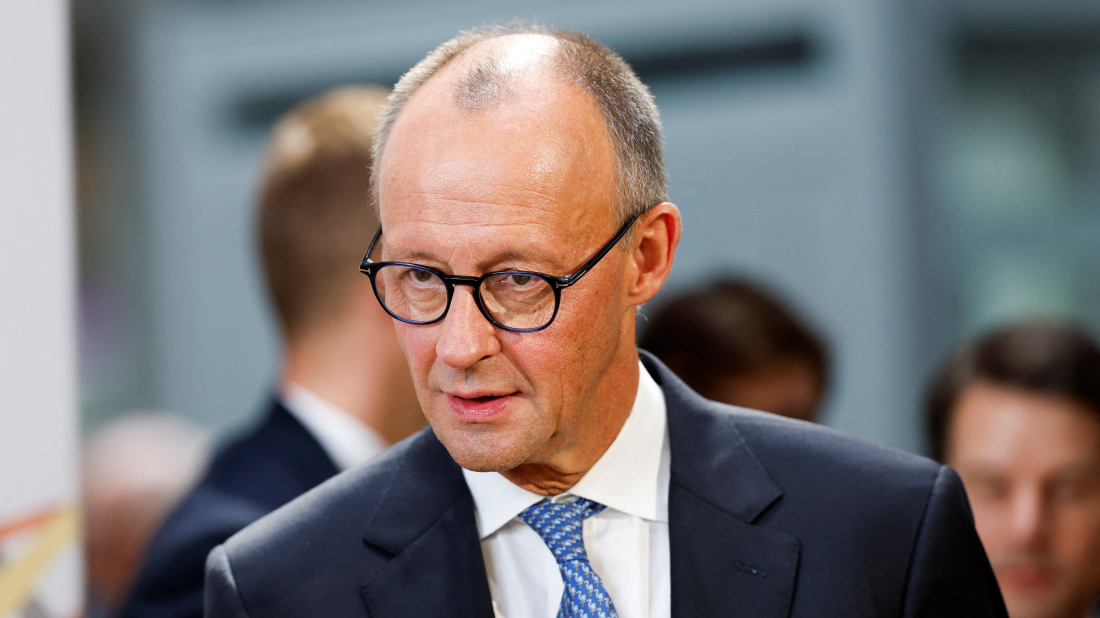Pentagon threatens to label Anthropic ‘supply chain risk’ over AI limits
The Pentagon has threatened to designate artificial intelligence firm Anthropic as a “supply chain risk” amid a dispute over the military use of i...

Germany has ended its fast-track citizenship programme, reflecting a shift in public attitudes toward migration and integration.
Chancellor Friedrich Merz’s conservatives had pledged during this year’s election campaign to rescind the law, which allowed people deemed “exceptionally well integrated” to gain citizenship in three years instead of the standard five.
“A German passport must come as recognition of a successful integration process and not act as an incentive for illegal immigration,” Interior Minister Alexander Dobrindt told parliament.
The rest of the citizenship law, introduced under former Chancellor Olaf Scholz’s Social Democrat-liberal-Green government, remains intact, despite prior conservative pledges to roll back reforms like dual citizenship and the reduction of the waiting period from eight years to five. The SPD, now junior partners in Merz’s coalition, defended the changes, noting the fast-track programme was rarely used.
Of the record 300,000 naturalisations in 2024, only a few hundred were via the fast track, intended to attract highly skilled individuals to Germany’s labour-short economy. Candidates had to show achievements such as excellent German language skills, voluntary service, or professional and academic success.
“Germany is in competition to get the best brains in the world, and if those people choose Germany we should do everything possible to keep them,” said Green Party lawmaker Filiz Polat.
Rising public concern over high migration levels has strained local services and bolstered support for the far-right Alternative for Germany party in some polls.
Iran’s Supreme National Security Council Secretary Ali Larijani said the United States could evaluate its own interests separately from those of Israel in ongoing negotiations between Tehran and Washington.
U.S. Secretary of State Marco Rubio on Sunday (15 February) called it “troubling” a report by five European allies blaming Russia for killing late Kremlin critic Alexei Navalny using a toxin from poison dart frogs.
Ukrainian President Volodymyr Zelenskyy said on Saturday that Russia’s decision to change the leadership of its delegation for upcoming peace talks in Geneva appeared to be an attempt to delay progress.
Cuba’s fuel crisis has turned into a waste crisis, with garbage piling up on most street corners in Havana as many collection trucks lack enough petrol to operate.
Norway is holding a commanding lead in the medal standings with 12 golds and a total of 26, with Italy having an historic performance on home soil on the ninth day of the Milano-Cortina Winter Olympics on Sunday (15 February).
The Pentagon has threatened to designate artificial intelligence firm Anthropic as a “supply chain risk” amid a dispute over the military use of its Claude AI model, according to a report published Monday.
Representatives of Ukraine, Russia and the United States are set to meet in Geneva for a third round of trilateral negotiations aimed at ending the nearly four-year war, even as both sides intensify military pressure on the ground.
The Prime Minister, Mark Carney, announced on 16 February that the Honourable Janice Charette has been appointed as the next Chief Trade Negotiator to the United States.
Cuba’s fuel crisis has turned into a waste crisis, with garbage piling up on most street corners in Havana as many collection trucks lack enough petrol to operate.
Day 10 of the Milano Cortina 2026 Winter Olympics delivered high-stakes semifinals, dramatic finishes and classic podium moments across Milan and the Italian Alps. Photographers captured split seconds of symmetry before puck drops, explosive turns on the ice and triumphant celebrations.
You can download the AnewZ application from Play Store and the App Store.

What is your opinion on this topic?
Leave the first comment